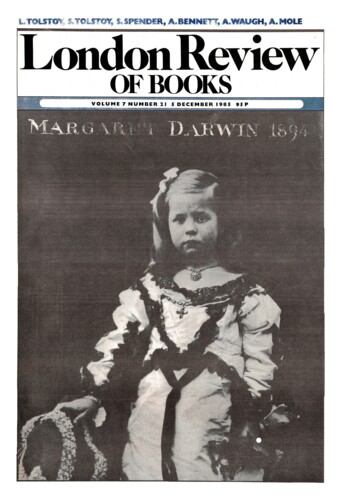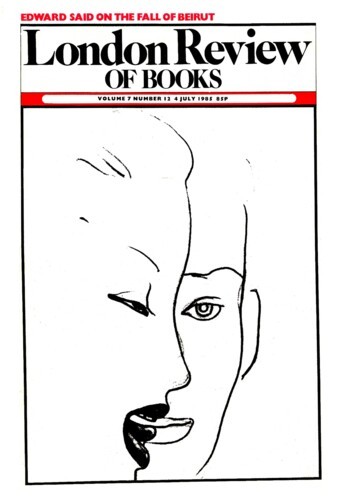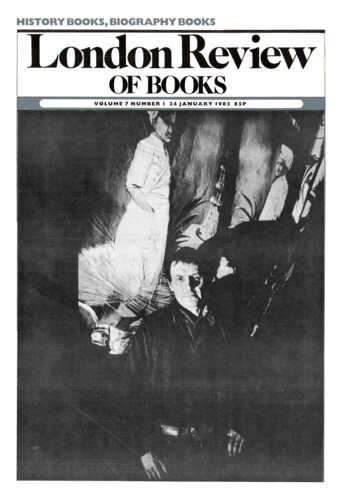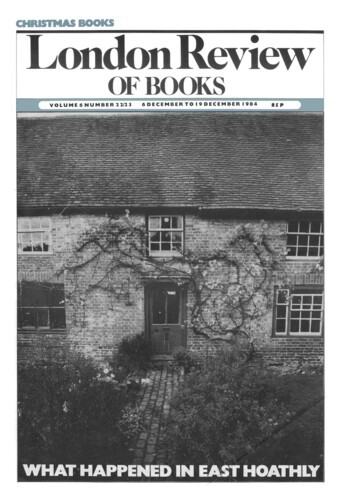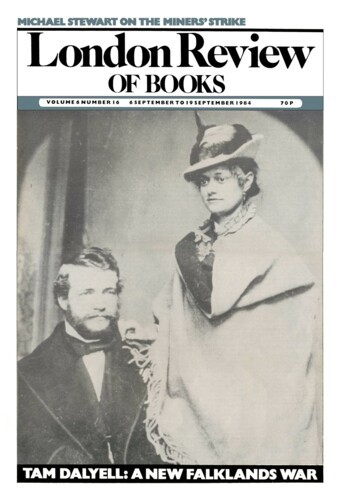Dialect does it
Blake Morrison, 5 December 1985
Poetry written in dialect seems to be undergoing a resurgence. Tony Harrison has made extensive use of Northern idioms. Tom Paulin has been busy raiding Ulster (and, I suspect, Scottish) dictionaries. Craig Raine has produced a manifesto, ‘Babylonish Dialects’, on dialect’s behalf. And several of the books under review here – by Scots, Welshmen and British West Indians – cannot be read without the glossaries which they thoughtfully provide. Such a resurgence may have a socio-political motive: at a time when the Government is imposing ‘centrality’, dialect is a way of fighting local corners, a way for the regions to remind the capital that they are no longer speaking the same language. In other poets, dialect stems simply from a frustration with standard English, which – by keeping a civil tongue in its head – is felt not to get enough said. Whatever the motives, poetry in dialect appears to go against the modern grain: against Imagism, which was also imagisme, a café society for the exiled, a glut or polyglut of purified observations recognising no race or creed; against the Esperanto of Thirties poetry with its depiction of a world struggle between Communism and Fascism; against the Fifties Movement school, which was provincial but not regional, scornful of ‘Lallans mongers’ and ‘Welsh valley babblers’ alike. But the underlying assumptions that Modernism and Europeanism look (progressively) to the future, while dialect and nationalism are (retrogressively) infatuated with the past, don’t square up with 20th-century practice. Lawrence and Joyce held onto their roots even in exile, and there was always MacDiarmid, whose ‘Gairmscoile’ stands the Modernist argument on its head:’
